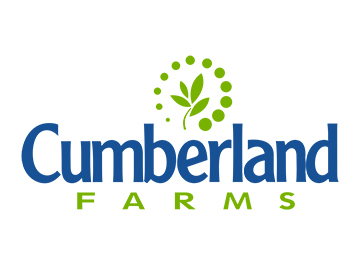MassPack To Appeal Cumberland Farms Ballot Petition Decision
 The Board of Directors of the Massachusetts Package Stores Association (MPSA) have by unanimous vote determined they will appeal the decision by Attorney General Maura Healey to certify the Cumberland Farms Ballot Petition. Despite strong opposition by all three tiers within the alcohol beverages industry, Attorney General Maura Healey has certified 19-14 Initiative Petition for a “Law Relative to the Sale of Beer and Wine by Food Stores.” I.P. In a challenge to validity of the Cumberland Farms ballot question the Attorney General was warned that the changes in law will do great harm to public safety and the alcohol beverages industry of Massachusetts. The veiled language of the Cumberland Farms ballot question misleads the electorate into terminating the state Section 15 quota system by 2024, immediately creates a new unlimited food store license classification outside the quota system, deregulates ID verification, takes revenues away from the State Budget and potentially reduces the number of ABCC inspectors.
The Board of Directors of the Massachusetts Package Stores Association (MPSA) have by unanimous vote determined they will appeal the decision by Attorney General Maura Healey to certify the Cumberland Farms Ballot Petition. Despite strong opposition by all three tiers within the alcohol beverages industry, Attorney General Maura Healey has certified 19-14 Initiative Petition for a “Law Relative to the Sale of Beer and Wine by Food Stores.” I.P. In a challenge to validity of the Cumberland Farms ballot question the Attorney General was warned that the changes in law will do great harm to public safety and the alcohol beverages industry of Massachusetts. The veiled language of the Cumberland Farms ballot question misleads the electorate into terminating the state Section 15 quota system by 2024, immediately creates a new unlimited food store license classification outside the quota system, deregulates ID verification, takes revenues away from the State Budget and potentially reduces the number of ABCC inspectors.
The validity of the ballot petition by Cumberland Farms was challenged by MPSA. The MPSA memorandum to the Attorney General properly demonstrated using case law and pointing to past precedence that the Cumberland Farms ballot question clearly did not meet state standards. The Beer Distributors of Massachusetts and the Wine and Spirit Wholesalers of Massachusetts also challenged the validity of the Cumberland Farms initiative. Unknown to the voter is that if passed, the Cumberland Farms petition will:
- Change the form of acceptable identification that a licensee can rely on to avoid liability for service to a person under the age of 21 by giving discretion to individual licensees to determine what forms of identification would be acceptable in addition to those currently enumerated in section 34B.
- Requires licensees to adopt and enforce an age verification policy that requires the presentation of a valid and reliable form of identification by all customers regardless of the actual or apparent age of the customer.
- Establishes a new “food store” license classification that would allow food store licensees to each hold an unlimited number of licenses to sell wines and malt beverages in Massachusetts.
- Creates unlimited licenses for Food Stores by carving out food store licenses from the definition and requirements imposed on exiting “licenses” under section 15 and under section 17’s quota system.
- Amends section 15 licenses by increasing, on a graduated basis from 7 to unlimited by 2024, the number of all-alcoholic off premise licenses that can be held by a single entity.
- Requires licensees to have by January 1, 2022 some form of electronic identification verification technology.
- Requires the creation of a separate fund for the implementation and ongoing administration of Chapter 138.
- Imposes requirements on the Alcohol Beverages Control Commission that it maintain a specific ratio of at least one investigator for every 250 licenses issue under sections 15 and 15D.
The MPSA board is disappointed that the Attorney General did not recognize the full weight of what is being asked of voters by the Cumberland Farms ballot question. MPSA also strongly maintains that the changes to state law in the Cumberland Farms ballot question are unrelated with one another other than they impact the alcohol beverages industry of Massachusetts. The deregulation of what is permissible ID for purchasing alcohol has no reasonable connection with the immediate creation of unlimited licenses for food stores who are already allowed to have up to 9 licenses per company in 2020.
The next step in the process is for Cumberland Farms to obtain a minimum of 80,239 signatures by certified voters in Massachusetts. In the meantime, an appeal to the Supreme Judicial Court of Massachusetts is being pursued by MPSA.
